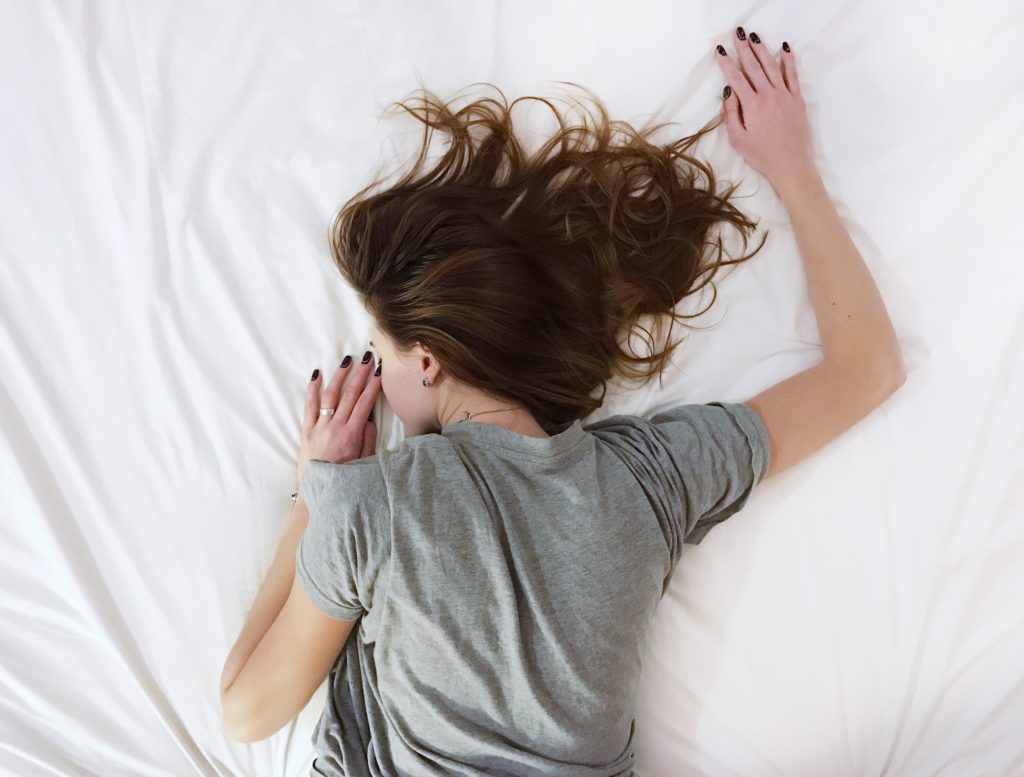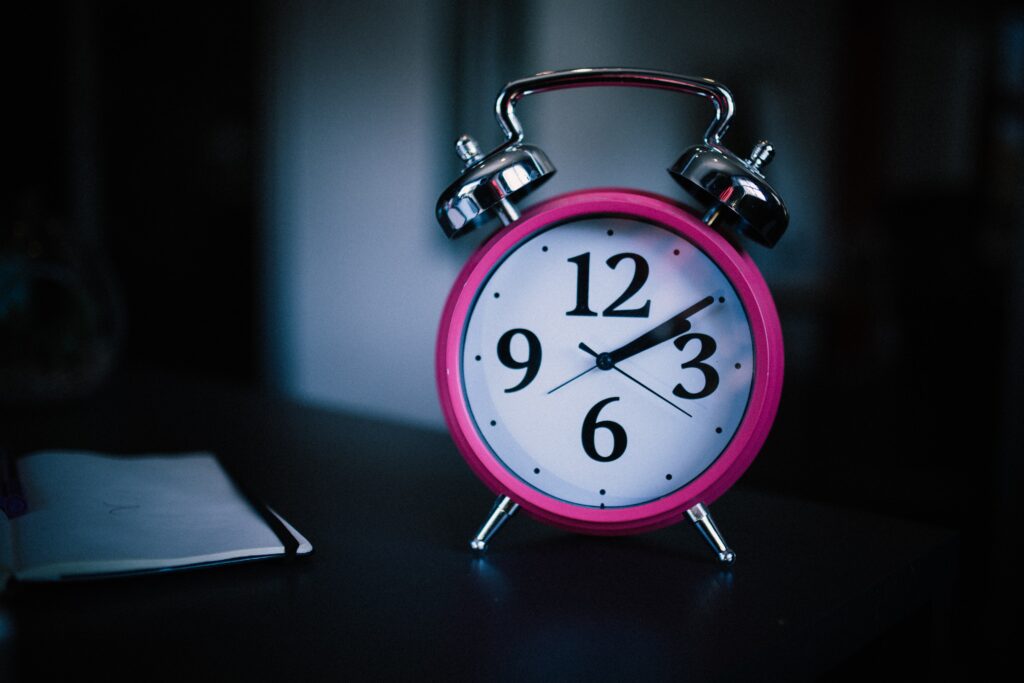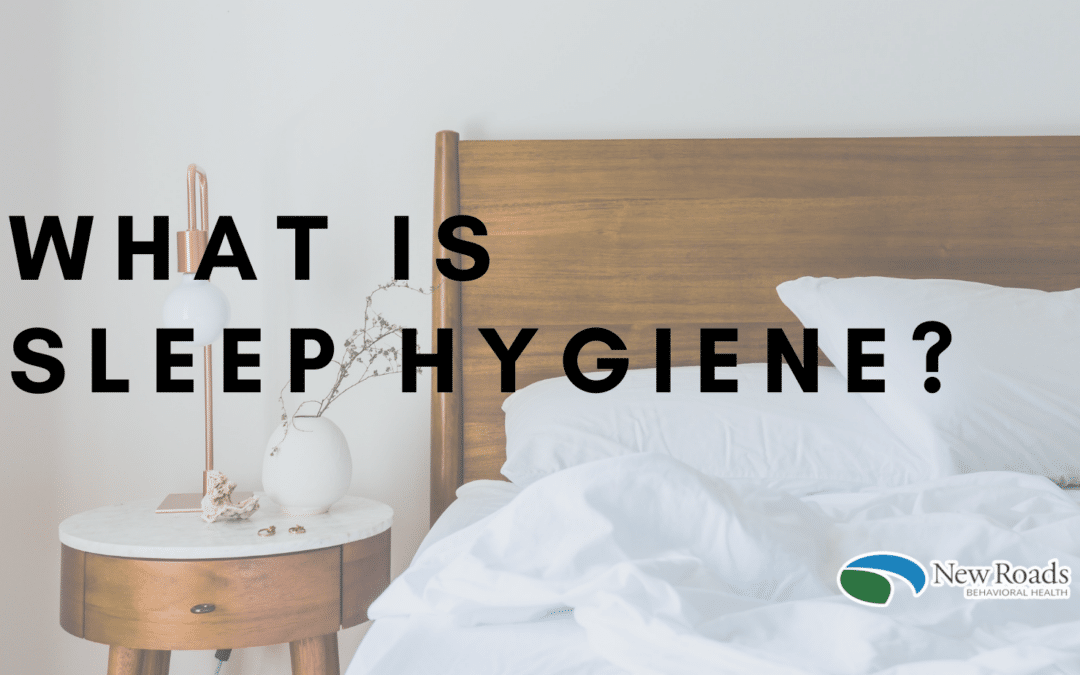‘Sleep hygiene’ is the term used to describe good sleep habits. Considerable research has gone into developing a set of guidelines and tips which are designed to enhance good sleeping, and there is much evidence to suggest that these strategies can provide long-term solutions to sleep difficulties.
There are many medications which are used to treat insomnia, but these tend to be only effective in the short-term. Ongoing use of sleeping pills may lead to dependence and interfere with developing good sleep habits independent of medication, thereby prolonging sleep difficulties. Talk to your health professional about what is right for you, but we recommend good sleep hygiene as an important part of treating insomnia, either with other strategies such as medication or cognitive therapy or alone.

Sleep Hygiene Tips
1) Get regular. One of the best ways to train your body to sleep well is to go to bed and get up at more or less the same time every day, even on weekends and days off! This regular rhythm will make you feel better and will give your body something to work from.
2) Sleep when sleepy. Only try to sleep when you feel tired or sleepy, rather than spending too much time awake in bed.
3) Get up & try again. If you haven’t been able to get to sleep after about 20 minutes or more, get up and do something calming or boring until you feel sleepy, then return to bed and try again. Sit quietly on the couch with the lights off (bright light will tell your brain that it is time to wake up) or read something boring like the phone book. Avoid doing anything that is too stimulating or interesting, as this will wake you up even more.
4) Avoid caffeine & nicotine. It is best to avoid consuming any caffeine (in coffee, tea, cola drinks, chocolate, and some medications) or nicotine (cigarettes) for at least 4-6 hours before going to bed. These substances act as stimulants and interfere with the ability to fall asleep
5) Avoid alcohol. It is also best to avoid alcohol for at least 4-6 hours before going to bed. Many people believe that alcohol is relaxing and helps them to get to sleep at first, but it interrupts the quality of sleep.
6) Bed is for sleeping. Try not to use your bed for anything other than sleeping and sex, so that your body comes to associate bed with sleep. If you use bed as a place to watch TV, eat, read, work on your laptop, pay bills, and other things, your body will not learn this connection.
7) No naps. It is best to avoid taking naps during the day, to make sure that you are tired at bedtime. If you can’t make it through the day without a nap, make sure it is for less than an hour and before 3pm.
8) Sleep rituals. You can develop your own rituals of things to remind your body that it is time to sleep – some people find it useful to do relaxing stretches or breathing exercises for 15 minutes before bed each night or sit calmly with a cup of caffeine-free tea.
9) Bath time. Having a hot bath 1-2 hours before bedtime can be useful, as it will raise your body temperature, causing you to feel sleepy as your body temperature drops again. Research shows that sleepiness is associated with a drop in body temperature.

10) No clock-watching. Many people who struggle with sleep tend to watch the clock too much. Frequently checking the clock during the night can wake you up (especially if you turn on the light to read the time) and reinforces negative thoughts such as “Oh no, look how late it is, I’ll never get to sleep” or “it’s so early, I have only slept for 5 hours, this is terrible.”
11) Use a sleep diary. This worksheet can be a useful way of making sure you have the right facts about your sleep, rather than making assumptions. Because a diary involves watching the clock (see point 10) it is a good idea to only use it for two weeks to get an idea of what is going and then perhaps two months down the track to see how you are progressing.
12) Exercise. Regular exercise is a good idea to help with good sleep but try not to do strenuous exercise in the 4 hours before bedtime. Morning walks are a great way to start the day feeling refreshed!
13) Eat right. A healthy, balanced diet will help you to sleep well, but timing is important. Some people find that a very empty stomach at bedtime is distracting, so it can be useful to have a light snack, but a heavy meal soon before bed can also interrupt sleep. Some people recommend a warm glass of milk, which contains tryptophan, which acts as a natural sleep inducer.
14) The right space. It is very important that your bed and bedroom are quiet and comfortable for sleeping. A cooler room with enough blankets to stay warm is best, and make sure you have curtains or an eye mask to block out early morning light and earplugs if there is noise outside your room.
15) Keep daytime routine the same. Even if you have a bad night sleep and are tired it is important that you try to keep your daytime activities the same as you had planned. That is, don’t avoid activities because you feel tired. This can reinforce the insomnia.
If you can’t fall asleep:
- If you are not asleep after 20 minutes, leave your bedroom and find something else that will relax you enough to help make you sleepy. Don’t stay in bed awake for more than 5-10 minutes.
- This is called sleep restriction. Lying in bed when you’re awake can become a habit that leads to poor sleep. Limiting the amount of time, you spend in bed can make you sleepier when you do go to bed. That way you’re more likely to fall asleep and stay asleep.
- If you find your mind racing or worrying about not being able to sleep during the middle of the night, get out of bed, and sit in a chair in the dark. Do your mind racing in the chair until you are sleepy, then return to bed. No TV or internet during these periods! That will just stimulate you more than desired.
- If this happens several times during the night, that is not abnormal. Just maintain your regular wake time and try to avoid naps.
- Sit quietly in the dark or read the warranty on your refrigerator. Don’t expose yourself to bright light while you are up. The light gives cues to your brain that it is time to wake up.
- Remaining passively awake. This involves avoiding any effort to fall asleep. Paradoxically, worrying that you can’t sleep can keep you awake. Letting go of this worry can help you relax and make it easier to fall asleep.
What if I continue to have a problem sleeping?
You may be referred for a sleep study or to see a sleep specialist who is trained to evaluate people for sleep disorders. Keep a sleep diary for a couple of weeks, noting when you get into and out of bed each day, when you sleep (including naps), and if you have any caffeine, alcohol, or nicotine throughout the day. This will help you look at your sleep pattern and what may affect it. You can share this diary with your healthcare provider. Your healthcare provider will want to know what medications you take, including any over-the-counter medications, herbals, and supplements. Other medical conditions that can cause sleep problems need to be addressed and may require further evaluation. If you have/are diagnosed with a sleep disorder, it is important to get treatment, because sleep disorders are generally long lasting and may cause or worsen other health problems, such as diabetes and high blood pressure. Reach out to our team today to receive the help you need to maintain your mental health in the midst of poor sleeping habits. Overall, it is critical for your sleep hygiene is taken care of and over-all, healthy.

